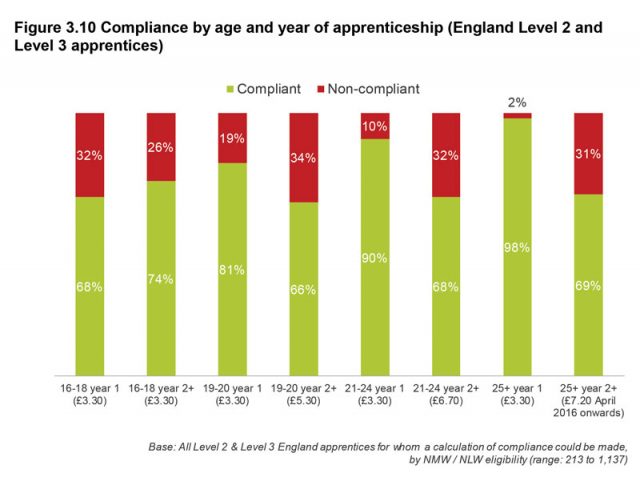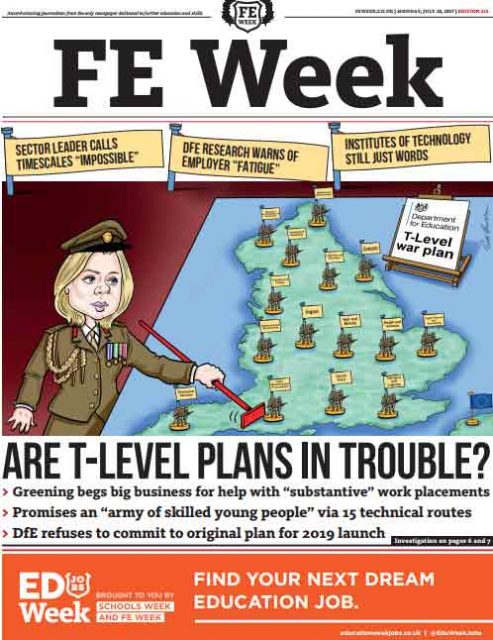The first T-levels will be delayed until September 2020 – a year later than planned – the government has announced
The first two pathfinder qualifications were supposed to be approved by February 2019, with teaching to commence from that September, according to England’s post-16 skills plan, published July 2016 and based on the recommendations from the Sainsbury review of technical education.
The remaining routes were then intended to be phased in from 2020 to 2022, a timescale that had been branded “impossible” by several major awarding bodies including City & Guilds.
Now, apprenticeships and skills minister Anne Milton (pictured above) has announced that she will delay delivery of the first qualifications by 12 months.
In an answer to a parliamentary question tabled by Rebecca Pow today, Ms Milton said: “The post-16 skills plan set out our plan to reform technical education including the introduction of 15 new technical routes to skilled employment, new college-based training programmes based on employer-designed standards, and high quality T-level work placements.
“My officials have now carried out extensive testing of the current delivery plans, including in relation to work placement provision, in discussion with employers, providers and awarding organisations.
“Following that assessment, we have concluded that we will deliver a small number of T-levels from September 2020.”
The remaining T-level routes will still be available as planned in September 2022.
Ms Milton added that over the summer, the Department for Education would “continue to refine and develop our plans working with business and the providers, and we will provide an update on progress in the autumn”.
Mark Dawe, chief executive of the Association of Employment and Learning Providers, welcomed today’s announcement: “This is a major reform programme that with deserves careful consideration to ensure that the curriculum and qualifications are world leading and stand the test of time. It’s a welcome development given the time concerns previously voiced.”
Pippa Morgan, head of education and skills at the Confederation of British Industry, said the delay was “welcome news” because the technical education reforms were “important and complicated”.
Welcome news from @AnneMilton today T-level timetable being adjusted. Tech Ed reforms important & complex, so extra time v welcome (1/2)
— Pippa Morgan (@Pipshow) July 20, 2017
David Hughes, chief executive of the Association of Colleges, added that he welcomed the timetable change because T-levels will require a “massive effort because of the complexity of the change, but also because we also collectively need to challenge the snobbery and unfairness which goes well beyond the education system”.
Today’s announcement follows a host of FE Week stories that have revealed a crisis in T-level planning. The DfE’s consultation on new qualifications has been pushed back until later this autumn, prompting several major awarding bodies to beg it to rethink its “impossible” timetable.
On Tuesday (July 18), we revealed that no-one has yet been appointed to the T-level advisory development panels that should have met for the first time four months ago, even though they will be instrumental in the development of the new qualifications.
And earlier today (July 20), the crisis deepened even further after a new DfE report suggested Lord Sainsbury’s recommendation to have one awarding organisation per qualification was not viable.
Other important stages in the process include procurement for the new technical qualifications, which is still due to begin in October 2018.
Positive tone in @educationgovuk T-level announcement. Esp. on value of biz-govt working together. @CBItweets called for timing change (2/2)
— Pippa Morgan (@Pipshow) July 20, 2017





